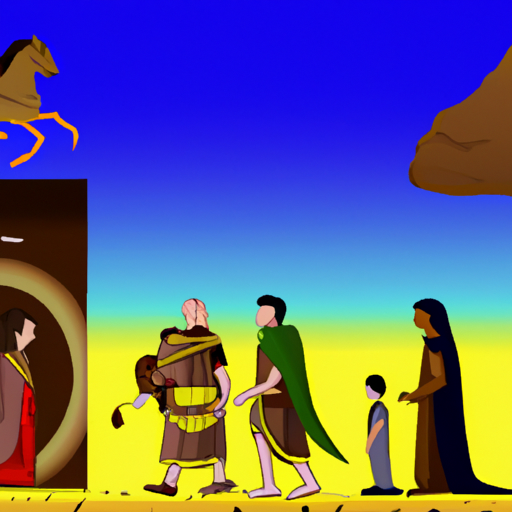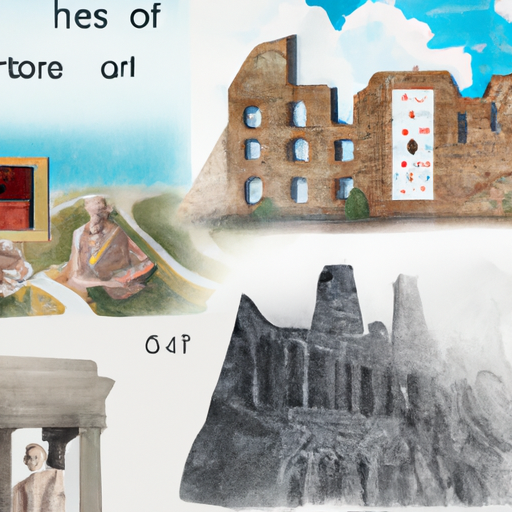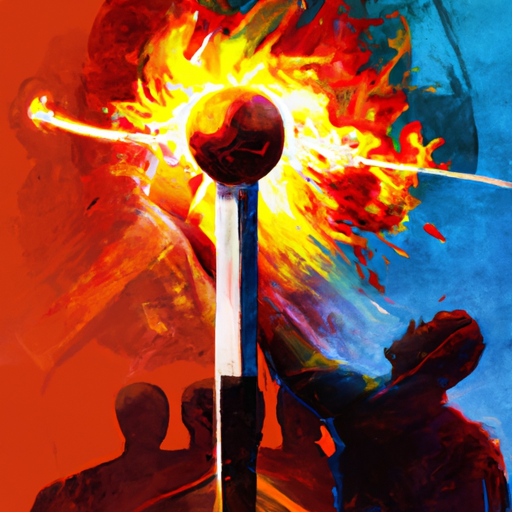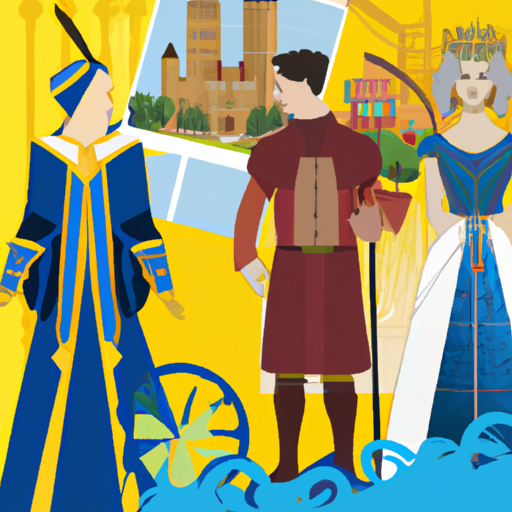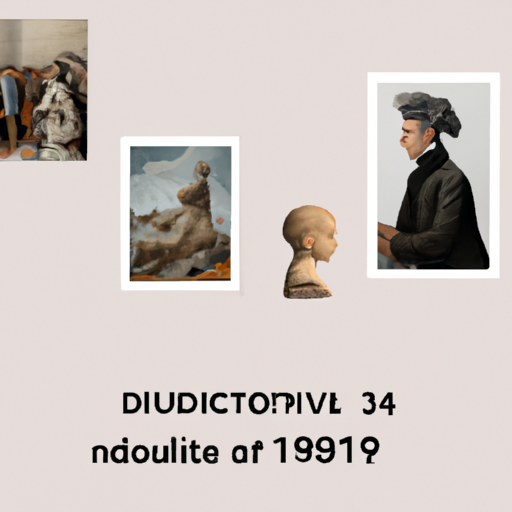A Look at the History of Hinduism and Its Age
Delve deep into the annals of antiquity to unearth the beginnings of Hinduism! Uncover its ancient foundations and discover how this religion has evolved over time. Trace its evolution through history to gain a better understanding of its complexities. Unravel the mysteries of Hinduism and explore its multifaceted traditions!
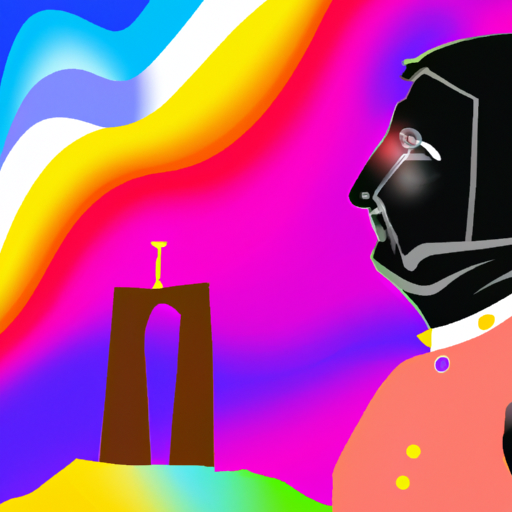
Tracing back through the centuries, Hinduism has been a mainstay of Indian culture since its inception in the Indus Valley Civilization. This ancient religion has evolved and adapted over time, incorporating influences from other religions and cultures. From gods and goddesses to rituals such as puja and yagna, discover how Hindu beliefs have shaped society throughout history. Uncover the philosophical concepts behind this faith, such as karma and reincarnation, as well as their impact on modern-day life. Delve into the role of caste in Hinduism, including its evolution over time. Finally, explore how this religion has spread beyond India’s borders to become one of the world’s most popular faiths today. Unravel its core values and teachings to gain a deeper understanding of this perplexing tradition!
.
Introduction
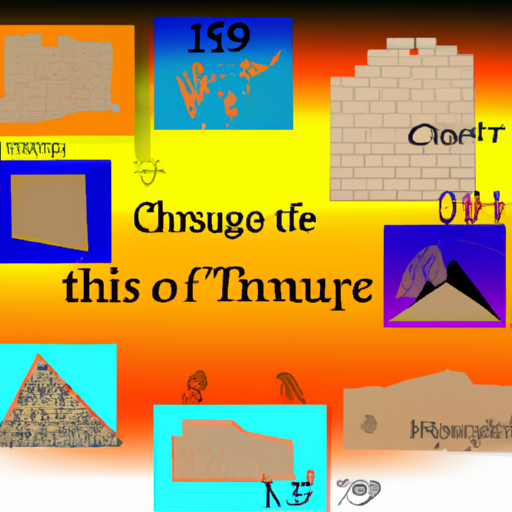
A perplexing mystery, shrouded in the mists of antiquity, is that of Hinduism – a spiritual and philosophical way of life which has been around for over three millennia. Believed to have originated in India somewhere around 1500 BCE, this ancient religion is still practiced by millions today. Over the centuries, it has adapted to incorporate various beliefs and customs from different cultures and regions. At its core lies the Vedas – ancient Sanskrit texts dating back to 1200-900 BCE – which form the basis of its teachings. A world-renowned religion, Hinduism continues to shape lives with its timeless wisdom.
– History of Hinduism and its Origins
Mystique and grandeur surround one of the oldest religions in the world, Hinduism. Believed to have emerged around 1500 BC in India, it has been a powerful force in the region for centuries. Its history can be divided into four distinct eras: Vedic, Epic, Puranic, and Modern.
The Vedic period (1500-500 BC) is seen as the origin of Hinduism as we know it today. During this time, ancient scriptures known as Vedas were written which form the basis of many Hindu beliefs and practices. Also during this era was the emergence of caste systems that would remain a key feature of Indian society for centuries to come.
In the Epic period (500 BC-300 AD), two major epics were born: The Ramayana and The Mahabharata. These epics contain tales about gods, heroes and other mythical characters that have become an integral part of Hindu mythology. Additionally, during this period philosophical schools such as Buddhism began to arise, challenging traditional Hindu teachings and customs.
The Puranic period (300-1200 AD) saw a boom in religious literature known as Puranas which contained stories about gods, goddesses, saints and other spiritual figures. This era also witnessed an expansion in temple building across India with temples dedicated to various deities becoming popular places of worship.
Finally, the Modern period (1200 AD-present) brought forth a revival in Hinduism with new movements such as Vaishnavism arising alongside more traditional forms like Shaivism and Shaktism. Reformers likewise appeared who sought to modernize Hinduism while still preserving its core values by introducing concepts such as monotheism. Nowadays Hindus number in millions all over the globe making it one of the largest religions on Earth.
– Historical Development of Hinduism
Mystifying and enigmatic, Hinduism has been around for millennia, with its roots stretching back over 3000 years. A polytheistic religion based on the Vedas, a set of ancient scriptures written in Sanskrit, its main teachings revolve around the concept of Dharma and reincarnation. Spreading throughout India and other parts of Asia over centuries, it has been heavily influenced by various cultures and religions, including Buddhism and Jainism.
The earliest known form of Hinduism was first mentioned in the Rig Veda around 1500 BCE, when gods such as Indra, Agni and Varuna were worshipped. This period also saw the emergence of Brahmanism as a distinct religious tradition which focused on rituals and sacrifices to appease these gods. Over time this developed into what we know today as Hinduism with the emergence of two new sects: Vaishnavites (followers of Vishnu) and Shaivites (followers of Shiva).
Around 500 BCE Buddhism had a significant impact on Hindu beliefs and practices. Since then Hinduism has continued to evolve due to cultural influences from outside sources as well as internal developments within its own traditions. Today it stands strong with millions of followers worldwide.
– Ancient Texts and Beliefs in Hinduism
Perplexing and bursting with energy, Hinduism is a religion that has been around for thousands of years. Its ancient texts, beliefs, and practices remain alive to this day, providing an entrancing view into the past and offering insight into its present-day customs. The Vedas, Upanishads, and other hallowed scriptures form the foundation of Hinduism’s faith and customs. These holy writings are filled with tales, hymns, philosophical teachings, and rituals that have been passed down through the generations. They not only provide direction on living a life of dharma (righteousness), but also offer spiritual understanding into the essence of existence. Furthermore, these age-old documents are a source of motivation for modern Hindus seeking to connect with their faith’s profound legacy. Yoga, meditation, and devotion to various deities like Shiva or Vishnu are other essential components of Hinduism which all stem from its ancient texts and beliefs that continue to shape India’s culture even today.
– The Age Old Traditions of the Hindu Religion
Mystifying and intriguing, Hinduism is a timeless faith that has been around for thousands of years. Its traditions have stood the test of time, manifesting in myriad forms – from religious ceremonies to daily life. Worship, or puja, is a core practice and involves offering prayers, offerings and chanting mantras to honour deities such as Shiva, Vishnu and Devi. This can take place anywhere from temples to homes to outdoor shrines. Yoga is also a common tradition; an ancient system of physical postures used for health, relaxation and spiritual development that has been practiced by Hindus across the globe for centuries. Ahimsa (non-violence) is another central concept that encourages respect for all living beings – humans, animals and plants alike – resulting in compassionate behaviour towards all creatures. Vegetarianism often follows from this principle out of respect for animal life. Furthermore, there are many other rituals associated with Hinduism such as fasting on certain days of the year or performing ceremonies like marriage rites or funeral rites according to prescribed rules and traditions. These ancient customs are what make up this dynamic religion today.
– Impact of Historical Events on Hinduism
Throughout its long and convoluted history, Hinduism has been subject to various events that have left an indelible mark on the religion. From the arrival of Buddhism in India in the 5th century BCE to Islamic invasions commencing in 711 CE and British colonialism during the 19th century, each occurrence has had an effect on Hinduism’s beliefs, practices, and culture.
The infusion of Buddhism into India brought with it a variety of fresh ideas, some accepted by Hindus while others were rejected. Noteworthy among these is ahimsa (non-violence), which has become a vital part of many Hindu doctrines. Additionally, concepts such as karma and reincarnation were introduced through Buddhism and are now essential parts of Hinduism.
The Islamic invasions caused much destruction to temples and monuments as well as forcing conversions and other forms of religious persecution leading to many Hindus fleeing or concealing their faith for fear of retribution. As a result, certain elements of Hinduism began to be practiced covertly or disguised in order to avoid detection by Muslim rulers.
The period of British colonialism also had an enormous impact on Hinduism. Christian missionaries spread their faith widely throughout India while introducing Western educational methods which sought to undermine traditional Indian values and beliefs. Moreover, colonial policies such as the caste system further entrenched inequality within Indian society which still lingers today.
It is thus evident that numerous historical events have profoundly impacted Hinduism over time in both subtle and significant ways that continue to shape it even today.
conclusion
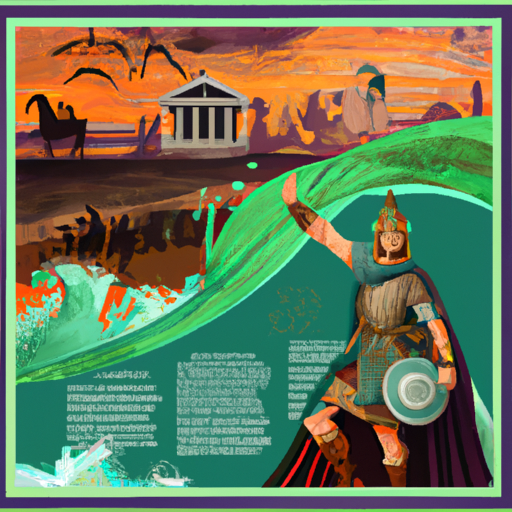
A perplexing yet expansive force, Hinduism has been around for millennia, with its inception believed to have taken place in the Indus Valley civilization. Since then, it has grown and spread across South Asia and beyond. Nowadays, it stands as one of the most populous religions on the planet, boasting a global following of over 1 billion individuals.
.
Some questions with answers
Q1: How old is Hinduism?
A1: Hinduism is one of the world’s oldest religions, with a history that dates back more than 4,000 years.
Q2: What is the origin of Hinduism?
A2: The origins of Hinduism can be traced back to the ancient Vedic period in India, which dates back to around 1500–1000 BCE.
Q3: Who are the founders of Hinduism?
A3: There is no single founder or creator of Hinduism. It has evolved over time and has been shaped by various religious movements and beliefs.
Q4: How has Hinduism changed over time?
A4: Over time, Hinduism has adapted to changing social and political conditions, incorporating new beliefs and practices. It has also been heavily influenced by other religions such as Buddhism and Jainism.
Q5: What are some key aspects of its history?
A5: Key aspects of the history of Hinduism include the development of major philosophical schools such as Advaita Vedanta, Yoga Sutras and Samkhya; the emergence of devotional movements such as Bhakti; and the growth and spread of Tantra.
